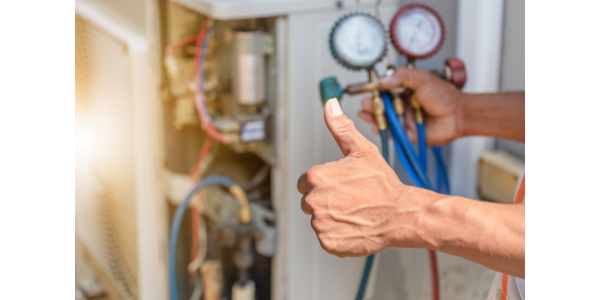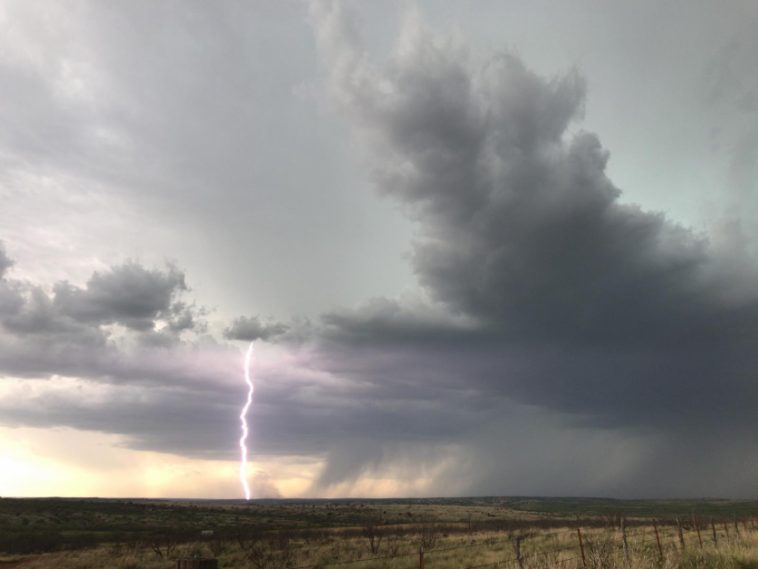Every year between May and November, the terrible storm season arrives and departs. Here are some recommendations on how to prepare by keeping your HVAC system secure from damage during harsh weather to save your wallet.
1. Have Your HVAC System Inspected

When you acquire an HVAC unit, you should receive a comprehensive inspection. Even if you’ve never utilized the services or purchased an HVAC unit you need to get it checked and inspected to see if there’s any present damage that needs to be addressed. Is it up and running? Is it maximizing the amount of energy expended? An inspection will provide you with the information you need to determine whether your system is ready to withstand the rising heat and harsh weather of summer.
2. Purchase a Surge Protector

During a storm, lightning may be devastating to an HVAC system, or any electronic device for that matter. Your HVAC unit will be protected from being struck and destroyed if you use a surge protector. Because the strength of these strikes is unpredictably high, you must consider that any surge could wipe out your circuit boards. The more powerful power surges can cause the machine to fail immediately, while others can deteriorate over time. Consider how many times your HVAC system is damaged when the electrical supply to your unit is uneven. The inner mechanisms, and finally the entire unit, will be harmed. A surge protector will take the hit so your air conditioner won’t! You can purchase a certified Heat, Air, & Electric Compressor Defender to protect your investment and your comfort from any legit HVAC merchant.
3. Strap It Down and Cover It Up
Using something sturdy to “roof proof” your HVAC system from flying debris during a storm might save you a lot of money. When it comes to creating the utmost protection against dangerous substances, covering an HVAC system with a tarp or any timber material can do the task. During severe storms, there are a variety of unknown compounds that might destroy your HVAC unit without your knowledge, so it’s critical to be prepared. If you need any assistance with what you can do to protect your unit, you can contact your friendly HVAC tech near you right away.
4. Switch it Off
Many people overlook this precaution when it comes to their HVAC systems during hurricane season, but turning them off before a storm is a fantastic method to avoid damage to your equipment. For example, if you fail to switch it off before a heavy rainfall and your house floods with two feet of water, your HVAC unit’s electrical panels would be irreversibly destroyed. You wind up paying far more than necessary since you need to replace it. So, especially if you live near the shore or in a flood zone, remember to turn it off before storms approach to avoid excessive repair costs.
5. Ahead of a Hurricane

We all know the difference between a nasty storm, a tropical storm, and a hurricane because we’ve all experienced them. The ideas above are useful for preparing for normal summer storms, which are common in some states, but there are a few extra crucial precautions to take when preparing for a hurricane.
- Before the storm, make sure to cool or heat your HVAC system as much as possible. You might wonder why. If you don’t have access to your HVAC system, you can keep your home as warm or cool as feasible. Depending on the temperature outside, this can be useful during a storm to keep you and your family comfortable until aid arrives. Contact your most reliable HVAC expert who has decades of experience dealing with HVAC units before and after hurricanes if one is approaching your area. They can assist you with protecting your investment on time.
- Any window units should be unplugged and moved indoors as soon as possible. Before the storm arrives, ensure that the window is sealed. If you don’t, the storm will be able to enter your home through an access point or weak spot!
- Before a large storm, turn off your HVAC system fully, especially if you have not yet purchased a surge protector, as previously said.
- Prepare your household with all of the basic living requirements to keep you and your family safe and comfortable, such as gallons of clean water, first aid kits, towels, and flashlights, in addition to preparing your HVAC systems for any significant storm. A backup generator is your best bet for keeping your power on if possible.
Maintaining your HVAC system during inclement weather will help you save money and make the experience less stressful.





GIPHY App Key not set. Please check settings